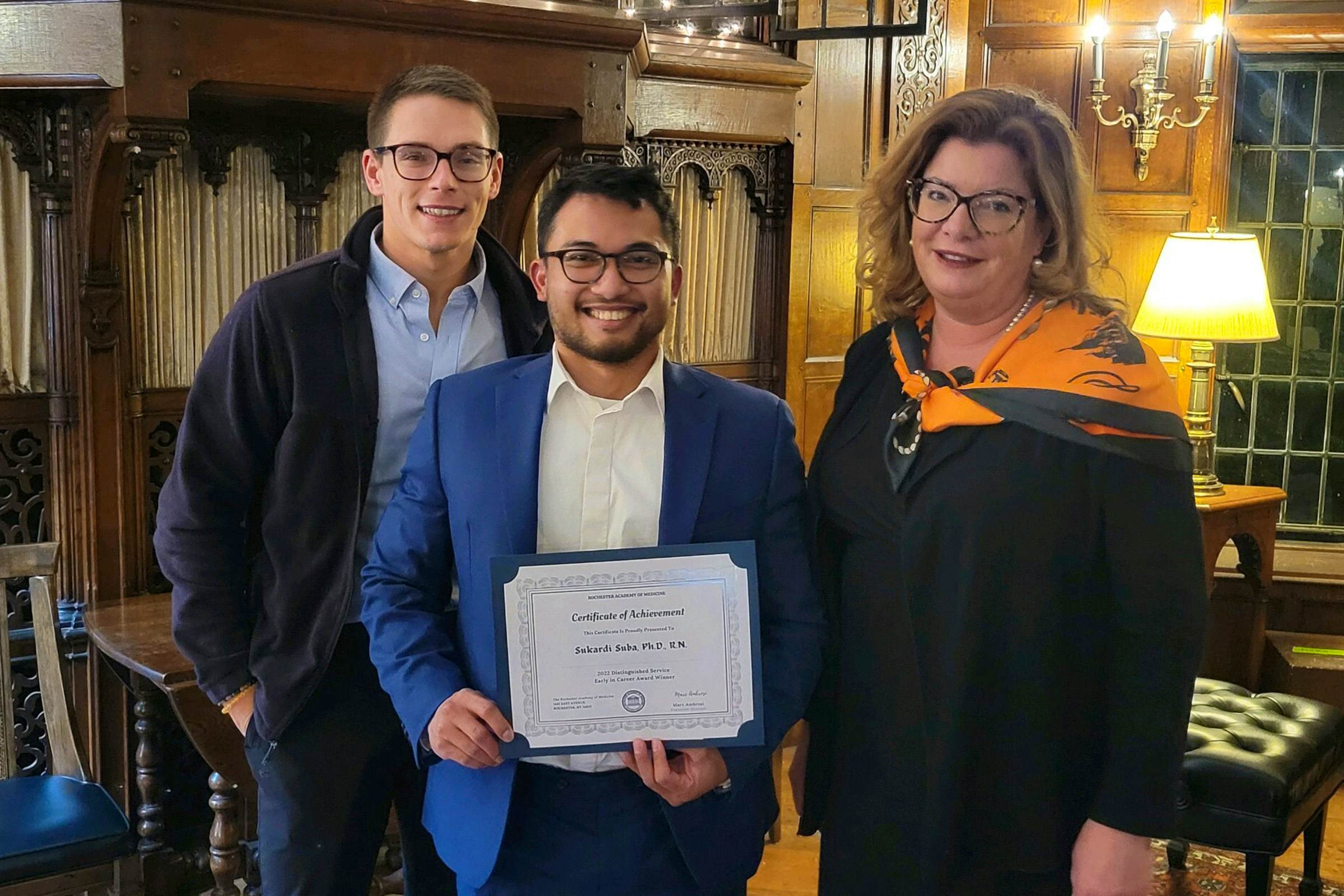Join Our Research Faculty
We are looking for researchers who are committed to improving health and health care delivery here in Rochester, NY and around the world.

Why UR Nursing?
Improving health outcomes is a central objective at the University of Rochester School of Nursing. Our researchers seek to improve care for all through close partnerships across upstate New York and in partnership with a leading academic medical center. Here, nursing scientists conduct their work in a supportive and inclusive environment where different perspectives and innovative ideas thrive.
Why the University of Rochester?

HEALTH CARE RESEARCH
A leading global research institution
The University of Rochester is home to more than 3,000 people dedicated to biomedical research, studying common and rare illnesses from cancer and heart disease to Parkinson’s and pandemic influenza. These efforts have led to therapies that have saved countless lives and improved human health locally, in the region, and across the globe. Our dedicated research facilities, faculty, staff, and student support, along with other critical resources, have enabled us to secure millions of dollars in research funding over the past five years. Medical and nursing research at Rochester is interconnected with our teaching and learning mission and the delivery of cutting-edge clinical care.
CONNECT
Learn more
Explore current research at the University of Rochester School of Nursing and connect with us to learn more.

